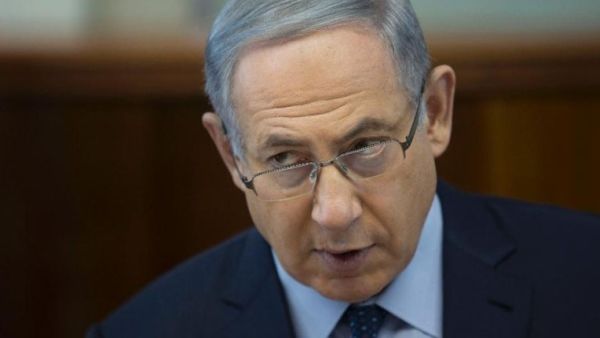As Donald Trump left the podium Wednesday after being elected US president, You Can't Always Get What You Want by the Rolling Stones played in the background.
There is perhaps no more fitting a song to capture what Trump's win means for Israeli Prime Minister Benjamin Netanyahu and the future of US-Israeli relations.
After three terms working with Democratic presidents (he was premier for three years during the Bill Clinton administration), Netanyahu finally got his wish for a president from the Republican Party, which long has been a staunch defender of Israel.
But on many policy issues, Trump does not fit into the traditional Republican mould, and he has no history in public office, leaving Israel to draw forecasts from campaign promises and his advisers.
A research paper distributed by the Israeli Foreign Ministry found that Trump has been inconsistent on the Israeli-Palestinian conflict and predicted that he would reduce US involvement on the issue, the Haaretz newspaper, which had obtained a copy, reported on Friday.
The report's findings seem consistent with statements made Thursday by Trump's Israel adviser, Jason Greenblatt, who said that Trump believes peace must be initiated by Israeli and Palestinian leaders.
"Any meaningful contribution he can offer up, he's there to do. But it's not his goal, nor should it be anyone else's goal, to impose peace upon the parties," said Greenblatt, who also serves as chief legal officer and executive vice president of the Trump Organization.
Greenblatt also added that Trump did not see Israeli settlements in the West Bank as an obstacle to peace and that he would keep his word regarding relocating the US Embassy from Tel Aviv to Jerusalem.
Itamar Rabinovich, former Israeli ambassador to the US, expressed doubt that Trump's ideas would be translated into policy at a panel discussion on Wednesday, according to the Times of Israel. He added that such policies would make more turmoil than the US could handle.
Trump's actions would spell a 180-degree pivot from previous US policy, which has long condemned settlement activity and considers it the main hurdle towards peace in the Middle East. The Israeli government denies that the West Bank is occupied, calling it "disputed territory" instead.
While the Israeli government sits in Jerusalem and insists that the city is its "eternal, undivided capital," the rest of the world, including the US, does not accept that position, and foreign embassies are located in or near Tel Aviv.
For Netanyahu, whose relationship with US President Barack Obama began to sour over continued settlement expansion, Trump's policies could push the reset button on US-Israeli relations and give him the chance to pursue his own agenda while the world looks elsewhere.
Some Israeli politicians gave a potential taste of what's to come: "Trump's victory is an opportunity for Israel to immediately retract the notion of a Palestinian state in the center of the country," said right-wing Education Minister Naftali Bennett in a letter to Trump.
Palestinian Foreign Minister Riyad al-Malki found that Trump's win, in light of his pro-Israel campaign promises, was cause for concern.
"The Palestinian people are very worried by the results of the American elections, especially after they heard Trump's statements during his campaign," he said, though he added that what Trump's actual policies will be would only become clear after he is sworn into office.
Netanyahu, for his part, has been cautious in his statements over the US election result, releasing a statement of platitudes that called Trump "a true friend" and did not mention any specific issues.
The spectre of Obama using his final months in the White House to make a last-ditch push for peace negotiations may explain Netanyahu's caution. Rumours that Obama would either issue a set of parameters or support an international initiative have swirled since the summer.
"The Obama administration would have nothing to lose in revealing the fruits of its efforts" behind the failed US-led peace talks in 2014, wrote Sarah Yerkes in a Brookings Institute piece in July.
While perhaps shoring up its own legacy, the outgoing US administration may not care what damage such a disclosure would do to Netanyahu or Abbas, she said.
By Miranda Lee Murray








